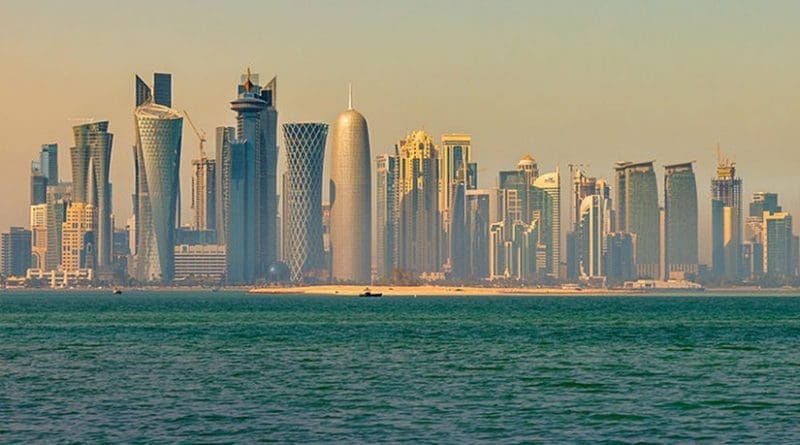Qatar: Families Arbitrarily Stripped Of Citizenship
Qatar’s decision to arbitrarily strip families from the Ghufran clan of their citizenship has left some members still stateless 20 years later and deprived of key human rights, Human Rights Watch said.
Stateless members of the Ghufran clan are deprived of their rights to decent work, access to health care, education, marriage and starting a family, owning property, and freedom of movement. Without valid identity documents, they face restrictions opening bank accounts and acquiring drivers’ licenses and are at risk of arbitrary detention. Those living in Qatar are also denied a range of government benefits afforded to Qatari citizens, including state jobs, food and energy subsidies, and free health care.
“Many stateless members of the Ghufran clan are still denied redress today,” said Lama Fakih, acting Middle East director at Human Rights Watch. “The Qatari government should immediately end the suffering of those left stateless and give them and those who have since acquired other nationalities a clear path toward regaining their Qatari citizenship.”
Human Rights Watch interviewed nine members of three stateless families of the Ghufran clan living in Qatar and one person from a fourth family who lives in Saudi Arabia. Altogether, there are 28 stateless individuals in the four families. Four others interviewed, two of whom live in Qatar, said they became Saudi citizens 8 to 10 years after Qatar stripped them of their citizenship.
A 56-year-old man whose citizenship along with that of his five children was stripped in 2004 described the impact: “I have no property in my name, no house, no income, no health card, I can’t even open a bank account, it’s like I don’t even exist. When I get sick [instead of going to a doctor or hospital] I take Panadol [a non-prescription painkiller] and hope for the best.”
The Ghufran clan is a branch of the semi-nomadic al-Murrahs, who span the Gulf region and are among the largest tribes in Qatar. While Qatar has restored citizenship to many of the thousands of Ghufran clan members whose citizenships they arbitrarily stripped starting in 1996, some families still have no clear path to restore their citizenship.
Human Rights Watch wrote to the Qatari Ministry of Interior on April 29, 2019 to raise concerns about the Ghufran clans’ situation. The letter did not receive a response at the time of this writing.
The Qatari government has asserted that those stripped of citizenship held a second nationality, for Saudi Arabia, presumably because a large faction of the al-Murrah had long ago also settled in Saudi Arabia and gained Saudi citizenship. Dual citizenship is prohibited under Qatar’s nationality law, as in other Gulf Cooperation Council countries.
But several clan representatives told Human Rights Watch that they believe the action was a form of collective punishment related to the participation of some members in a failed 1996 coup against then-Emir Hamad Al Thani, who had deposed his father, Khalifa Al Thani, the year before. In a 2006 US State Department report, “diplomats pointed out that many other dual nationals in Qatar have not been affected.”
All of those interviewed denied having a second nationality when their Qatari citizenship was revoked. Some said that they were subsequently unable to obtain a second nationality. Others said that they had been able to obtain a second nationality, but that their origins were Qatari.
None of the interviewees had received any official or written communication stating the reason behind the revocation of their citizenship or offered the chance to appeal. All, including those who returned to Qatar following the Gulf crisis in June 2017, said they either fled, were deported, or were denied entry back into Qatar after their citizenship was revoked. They said they settled for several years in Saudi Arabia, the United Arab Emirates, or Kuwait as stateless persons. All showed documentary evidence that they were Qatari nationals.
While the Qatari government maintains that those whose citizenship has not been restored are Saudi nationals, none of the three stateless families interviewed who live in Qatar say the government allowed them to challenge that designation. They said they had reached out to the Interior Ministry, the National Human Rights Committee, and the Emir’s office multiple times to try to restore their citizenship.
The United Nations Human Rights Council (UNHRC) will conduct its third review of Qatar’s human rights record under the Universal Periodic Review (UPR) procedure on May 15 in Geneva. Over the past two years, Ghufran activists have called on the UNHRC to help restore their clan’s lost rights. A joint submission to the UPR in October 2018 by the Global Campaign for Equal Nationality Rights, the Institute on Statelessness and Inclusion, and the Rights Realization Center also addressed the issue.
“The Qatari government should create a timely and transparent system to review the citizenship claims of members of Ghufran clan,” Fakih said. “Qatar should follow the positive recent steps it’s taken in ratifying core human rights treaties and make sure the rights enshrined there are being respected.”

